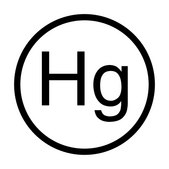Sign In to View Organizational & Contract Pricing.
Select a Size
About This Item
NACRES:
NA.81
UNSPSC Code:
12352200
Storage temp.:
2-8°C
storage temp.
2-8°C
Biochem/physiol Actions
Glutathione S-transferase theta 1 (Gstt1) is an enzyme that in rats is encoded by the Gstt1 gene. Glutathione S-transferases (GSTs) are a family of enzymes that play an important role in detoxification by catalyzing the conjugation of many hydrophobic and electrophilic compounds with reduced glutathione. Based on their biochemical, immunologic, and structural properties, cytosolic and membrane-bound forms of glutathione S-transferase are encoded by two distinct supergene families. At present, eight distinct classes of the soluble cytoplasmic mammalian glutathione S-transferases have been identified: alpha, kappa, mu, omega, pi, sigma, theta and zeta. The GSTs are thought to function in xenobiotic metabolism and play a role in susceptibility to cancer, and other diseases.
Features and Benefits
Glutathione S-Transferase (GST) has multiple isoforms. This assay is specific for Glutathione S-Transferase Alpha (GSTA) and is not known to cross react with the mu, pi, or theta variants. GSTA is a common biomarker for hepatocellular damage.1 It also conjugates GSH to 4-hydroxynonenal, a product of lipid peroxidation2 and is an important player in cellular antioxidant defense mechanisms.3
This is a standard sandwich enzyme-linked immunosorbent assay (ELISA). The plate is pre-coated with anti-GSTA and blocked, ready for the addition of samples and standards. The assay should take approximately 2.5 hours to run, plus any required sample preparation time.
When measuring urine samples, it is recommended to normalize samples to creatinine to account for variations in fluid intake and excretion. Creatinine is produced at a constant rate and can be used to normalize the concentrations of other analytes. Creatinine Assay Kit
This is a standard sandwich enzyme-linked immunosorbent assay (ELISA). The plate is pre-coated with anti-GSTA and blocked, ready for the addition of samples and standards. The assay should take approximately 2.5 hours to run, plus any required sample preparation time.
When measuring urine samples, it is recommended to normalize samples to creatinine to account for variations in fluid intake and excretion. Creatinine is produced at a constant rate and can be used to normalize the concentrations of other analytes. Creatinine Assay Kit
Disclaimer
For U.S. Customers: Contains mercury; Do not place in trash - dispose according to local, state, or federal laws.


signalword
Warning
hcodes
Hazard Classifications
Acute Tox. 4 Oral - Aquatic Chronic 4 - Carc. 2
Storage Class
10 - Combustible liquids
flash_point_f
Not applicable
flash_point_c
Not applicable
Regulatory Information
新产品
This item has
Choose from one of the most recent versions:
Already Own This Product?
Find documentation for the products that you have recently purchased in the Document Library.
Related Content
Our team of scientists has experience in all areas of research including Life Science, Material Science, Chemical Synthesis, Chromatography, Analytical and many others.
Contact Technical Service
